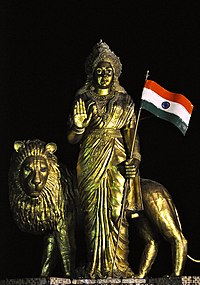 |
| Second review - scroll down for earlier |
It's been well over three years since I reviewed this incense, and though I have burned it now and again over those years, I haven't sat down to think about it and consider if I still like it, and if I find it as I did back in September of that year. I do like this. It is familiar and comforting with warm, sensual tones that gently inform and enliven a room. There's sandalwood, but also rich cedar, and there's also the warm, moist wool tones of the halmaddi with its occasional prickles and sharp notes. This is elegant, refined, cultured, and very familiar, and gives a relaxing and remeasuring mood to the home. This is an incense that would support you in moments of doubt or hesitation. It's an incense that would generate an atmosphere of trust. It's very good indeed.
Date: March 2017 Score: 40
 |
| First review |
These Aargee commissioned incense sticks are part of their Imperial range which uses halmaddi - a sticky and fragranced resin from the Ailanthus triphysa tree, which is commonly used in Nag Champa incense, though there is some degree of uncertainty as to how much it contributes to the overall aroma. The resin is used instead of jigat or makko powder as a binding agent to hold together the sandalwood and charcoal powder which forms the combustible base of the incense. Some incense enthusiasts, such as those writing for the Olfactory Rescue Service blog, feel that the finest incense is made with halmaddi, and that recent batches of Nag Champa have declined in quality due to possible changes in recipe that may have exchanged halmaddi for makki powder. I bought these for £1.30 for 15g (approx 11 sticks) from Incense Essentials, so these halmaddi incense sticks are reasonably priced. These have been hand-rolled with a masala blend of herbs, spices and other fragrant ingredients. The surface is powdery with a sandalwood colour, and when scratched will reveal the charcoal base beneath. The bamboo stick has been dyed pink, giving an overall very pleasing appearance. The scent is well perfumed - hints of fresh pine sawdust, beeswax polish; nicely balanced between sweet and musky.
On burning, it's the sandalwood that makes the biggest initial impression. And then some church incense notes come through - a blend of frankincense and myrrh. The packet says that this is a "bouquet fragrance", and for that I would expect some flowery notes, though the only ones I am detecting are more woody flowers, (such as champa frangipani) or nag champa (champaca).
This is an overall very decent, sandalwood accented incense, though I am not being carried away by it. There's a little too much dryness to it, and some herbal harshness. If the claims of halmaddi are to be true, I would have expected this to smell more moist and inviting. Having said that, while not being one of my very top incenses, it is one I am enjoying very much, and it will get a high score.
 |
| Bharat Mata, the Indian version of Britannia |
The name, Bharat Mata, is the Indian version of Britannia - she is the goddess personification of Mother India. She is often depicted, as on the picture on the packet, with a flag and a lion. Other than Bharat Mata's image, the packet is fairly plain - the rest of it being composed of information about the incense. The Imperial range recipes have been made by the same family of incense blenders for over sixty years. After rolling, the incense sticks are left out to dry naturally in the early morning sunshine. Sounds very evocative. I wonder who the family are?
Date: Sept 2013 Score: 39



No comments:
Post a Comment
Please leave a comment: